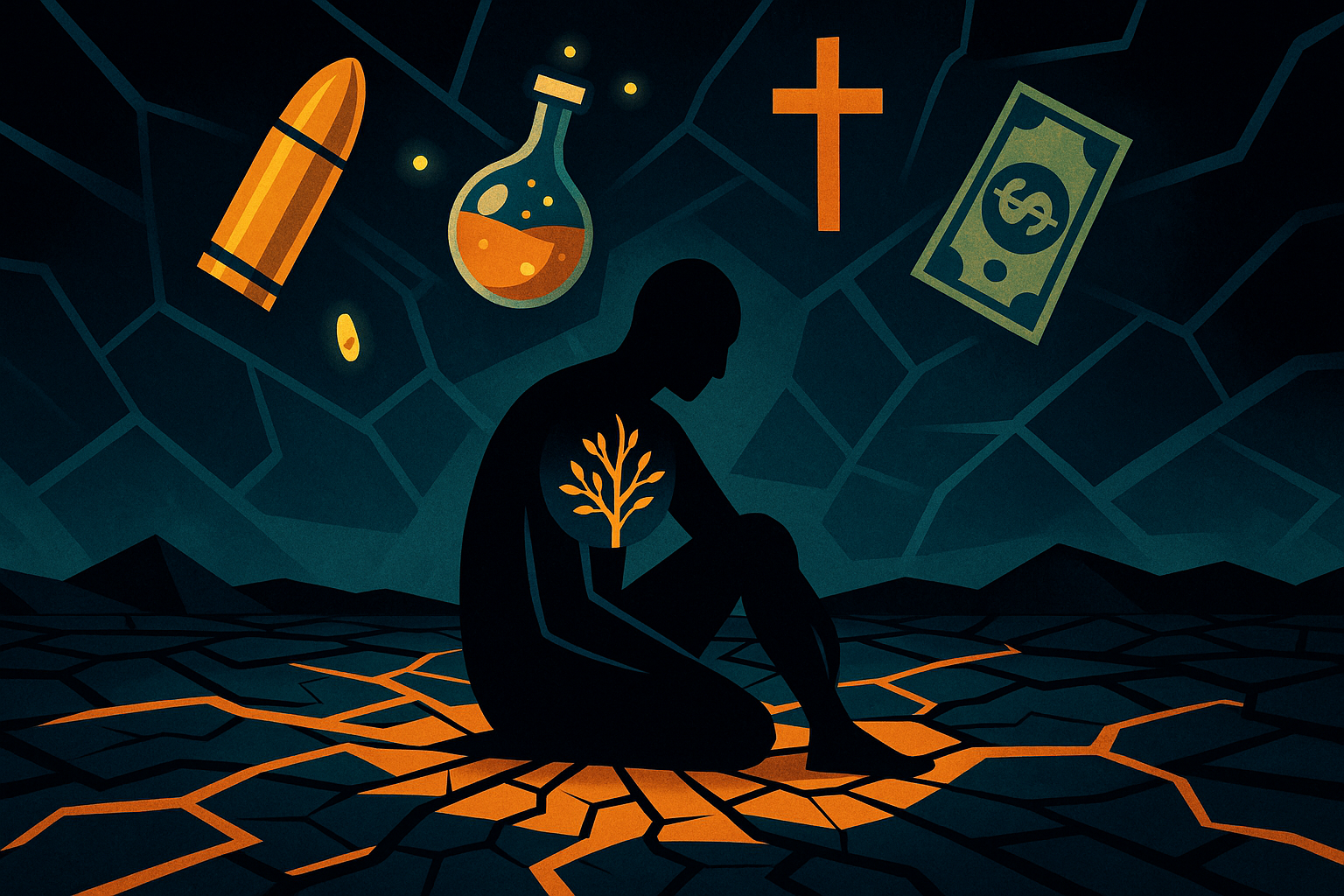- All
- Blog
- Holistic Healing
- Interviews
- Latest Content
- Relationships
- Stories
- Triggers
- Uncategorized
- Videos
All
- All
- Blog
- Holistic Healing
- Interviews
- Latest Content
- Relationships
- Stories
- Triggers
- Uncategorized
- Videos
No Magic Bullet
Ken Wells
July 15, 2025
READ IT TO ME: Click play to listen to this post. “People are always looking for the single magic bullet that will totally change everything. ...
Read More →
Unvarnished Heroes
Ken Wells
July 11, 2025
READ IT TO ME: Click play to listen to this post. “An anti-hero is someone who doesn’t fit neatly into the archetype of a traditional ...
Read More →
The Influence of Early Childhood on a Concept of God
Ken Wells
July 8, 2025
Step 2: “Came to believe that a Power greater than ourselves could restore us to sanity.” “If you live insane and bizarre long enough you ...
Read More →
Rinse and Repeat: Resolving Re-enactment From Childhood Trauma #2
Ken Wells
July 4, 2025
READ IT TO ME: Click play to listen to this post. In my last blog, I wrote about the impact of trauma repetition and re-enactment ...
Read More →
Rinse and Repeat: Resolving Re-enactment From Childhood Trauma
Ken Wells
July 1, 2025
READ IT TO ME: Click play to listen to this post. For sure, nobody gets through childhood unscathed. Some of us experience “Big T” traumas ...
Read More →
Crystal Living
Ken Wells
June 27, 2025
READ IT TO ME: Click play to listen to this post. Hold a piece of crystal to the light and it paints a rainbow on ...
Read More →






